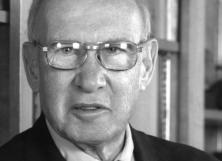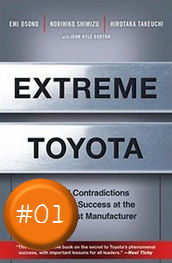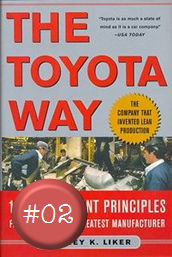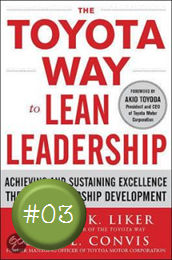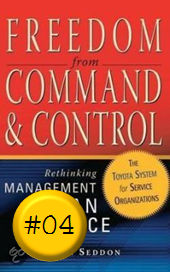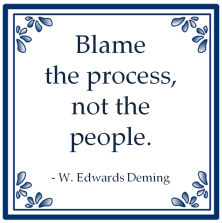In zijn boek The practice of management beschrijft Peter Drucker wat hij verstaat onder management by objectives:
![]()
Any business enterprise must build a true team and weld individual efforts into a common effort. Each member of the enterprise contributes something different, but they must all pull in the same direction, and their contributions must fit together to produce a whole - without gaps, without friction, without unnecessary duplication of effort.
Business performance therefore requires that each job be irected towards the objectives of the whole business. And in particular each manager's job must be focused on the success of the whole. The performance that is expected of the manager must be derived from the performance goals of the business, his results be measured by the contribution they make to the success of the enterprise. The manager must know and understand what the business goals demand of him in terms of performance, and his superior must know what contributions to demand and expect of him - and must judge him accordingly. If these requirements are not met, managers are misdirected. Their efforts are wasted. Instead of team work, there is friction, frustration and conflict.
Management by objectives requires major effort and special instruments. For in the business enterprise managers are not automatically directed towards a common goal. On the contrary, business, by its very nature, contains three powerful factors of misdirection: in the specialized work of most managers; in the hierarchical structure of management; and in the differences in vision and work and the resultant insulation of various levels of management.
(...)
What should the objectives of a manager be?
Each manager, from the 'big boss' down to the production foreman or the chief clerk, needs clearly spelled-out objectives. These objectives should lay out what performance the man's own managerial unit is supposed to produce. They should lay out what contributions he and his unit are expecte to make to help other units obtain their objectives. Finally, they should spell out what contribution the manager can expect from other units towards the attainment of his own objectives. Right from the start, in other words, emphasis should be on teamwork and team results.
(...)
How should managers's objectives be set and by whom?
By definition, a manager is responsible for the contribution that his component makes to the larger unit above him and eventually to the enterprise. His performance aims upward rather than downward. This means that the goals of each manager's job must be defined by the contribution he has to make to the success of the larger unit of which he is a part.
(...)
The greatest advantage of management by objectives is perhaps that is makes it possible for a manager to control his own-performance. Self-control means stronger motivation: a desire to do the best rather than just enough to get it.
A philosophy of management
What the business entrerprise needs is a principle of management that will give full scope to individual strength and responsibility, and at the same time give common direction of vision and effort, establish team work and harmonize the goals of the individual with the common weal.
The onlly principle that can do this is management by objectives and self-control. It makes the common weal the aim of every manager. It substitues for control from outside the stricter, more exacting and more effective control from the inside. It motivates the manager to action not because somebody tells him to do something or talks him into doing it, but because the objective needs of his task demand it. He acts not because somebody wants him to but because he himself decides that he has to - he acts, in other words, as a free man.
[M]anagement by objectives and self-control may legitimately be called a 'philosophy' of management. It rests on a concept of the job of management. It rests on the analysis of the specific needs of the management group and the obstacles it faces. It rests on a concept of human action, human behaviour and human motivation. Finalyy, it applies to every manager, whatever his level and function, and to an business enterprise whether large or small. It ensures performance by converting objective needs into personal goals. And this is genuine freedom, freedom under the law.
Bron: The Practice of Management, Peter Ferdinand Drucker






